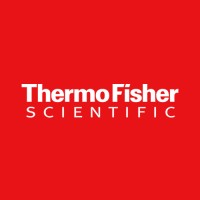CD43 / Alexa Fluor 488 / 1B11
Product Details
| Description | CD43 / SPN Monoclonal Antibody, Alexa Fluor® 488 conjugate (1B11). Sialophorin (leukosialin) is a major sialoglycoprotein on the surface of human T lymphocytes, monocytes, granulocytes, and some B lymphocytes, which appears to be important for immune function and may be part of a physiologic ligand-receptor complex involved in T-cell activation.FACS Assay Dependent | |
|---|---|---|
| Conjugate | Alexa Fluor 488 | |
| Clone | 1B11 | |
| Target Species | Mouse | |
| Applications | FC | |
| Supplier | Thermo Fisher Scientific | |
| Catalog # | Sign in to view product details, citations, and spectra | |
| Size | ||
| Price | ||
| Antigen | ||
| Host | ||
| Isotype |
About CD43
This gene encodes a highly sialylated glycoprotein that functions in antigen-specific activation of T cells, and is found on the surface of thymocytes, T lymphocytes, monocytes, granulocytes, and some B lymphocytes. It contains a mucin-like extracellular domain, a transmembrane region and a carboxy-terminal intracellular region. The extracellular domain has a high proportion of serine and threonine residues, allowing extensive O-glycosylation, and has one potential N-glycosylation site, while the carboxy-terminal region has potential phosphorylation sites that may mediate transduction of activation signals. Different glycoforms of this protein have been described. In stimulated immune cells, proteolytic cleavage of the extracellular domain occurs in some cell types, releasing a soluble extracellular fragment. Defects in expression of this gene are associated with Wiskott-Aldrich syndrome. [provided by RefSeq, Sep 2017]
This gene encodes a highly sialylated glycoprotein that functions in antigen-specific activation of T cells, and is found on the surface of thymocytes, T lymphocytes, monocytes, granulocytes, and some B lymphocytes. It contains a mucin-like extracellular domain, a transmembrane region and a carboxy-terminal intracellular region. The extracellular domain has a high proportion of serine and threonine residues, allowing extensive O-glycosylation, and has one potential N-glycosylation site, while the carboxy-terminal region has potential phosphorylation sites that may mediate transduction of activation signals. Different glycoforms of this protein have been described. In stimulated immune cells, proteolytic cleavage of the extracellular domain occurs in some cell types, releasing a soluble extracellular fragment. Defects in expression of this gene are associated with Wiskott-Aldrich syndrome. [provided by RefSeq, Sep 2017]
About Alexa Fluor 488
Alexa Fluor™ 488 (AF488, Alexa 488) has an excitation peak at 488 nm and an emission peak at 496 nm, and is considered a high-performance alternative to FITC. Alexa 488 is one of the most popular Alexa Fluor™ dyes and is widely used in Fluorescence Microscopy, flow cytometry, and for staining low expression markers. It is bright, highly photostable, resistant to pH changes, and less susceptible to photobleaching. Alexa 488 and is similar in size, brightness and application to DyLight™ 488, iFluor® 488 and CF®488A.
Alexa Fluor™ 488 (AF488, Alexa 488) has an excitation peak at 488 nm and an emission peak at 496 nm, and is considered a high-performance alternative to FITC. Alexa 488 is one of the most popular Alexa Fluor™ dyes and is widely used in Fluorescence Microscopy, flow cytometry, and for staining low expression markers. It is bright, highly photostable, resistant to pH changes, and less susceptible to photobleaching. Alexa 488 and is similar in size, brightness and application to DyLight™ 488, iFluor® 488 and CF®488A.
Experiment Design Tools
Panel Builders
Looking to design a Microscopy or Flow Cytometry experiment?
Validation References
Reviews & Ratings
| Reviews |
|---|
Looking for more options?
1722 CD43 antibodies from over 44 suppliers available with over 94 conjugates.





